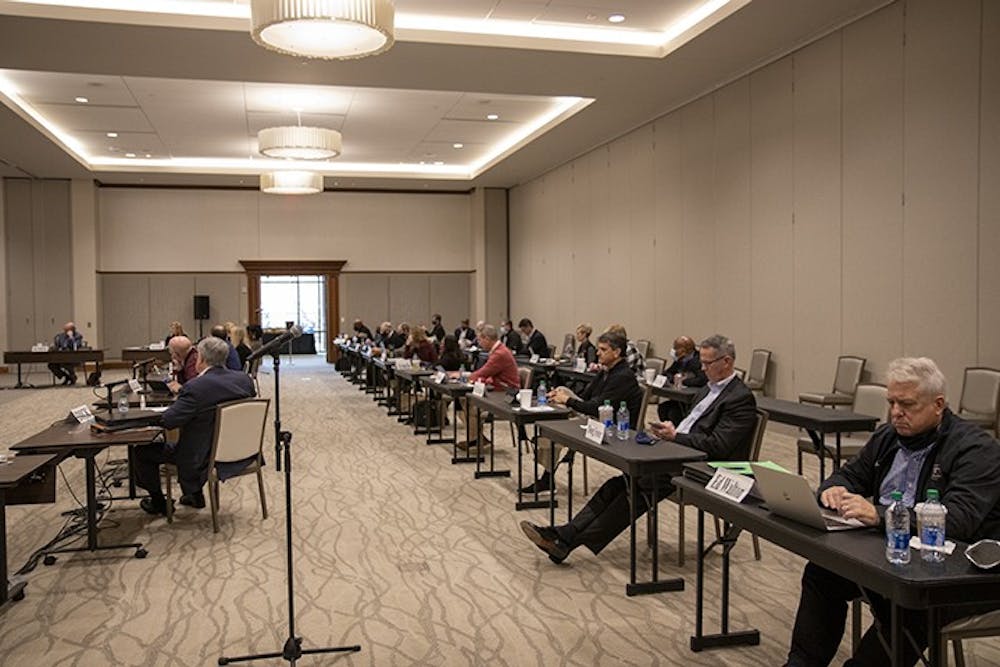The governance committee for USC's board of trustees gave an update on the school's recent removal from the regional accreditation agency's monitoring status during the second day of the annual board of trustees retreat.
Vice Chairman of the board Thad Westbrook said the governance committee is trying to "clean up things" to get into a better relationship with the regional accreditation agency, the Southern Association of Colleges and Schools Commission on Colleges (SACSCOC).
"As far as the governance committee, we're doing that overhaul of the bylaws that you referenced earlier, to clean up things, and we're having active discussions about areas of responsibility and making sure that if there's something that's left out, we put it in; if there's something that's in there that doesn't belong, we take it out or realign it with a different committee," Westbrook said.
The governance committee is primarily in charge of how the board is run and is mainly responsible for many of the initiatives to earn USC an acceptable reputation.
Westbrook stated he feels the "weight of responsibility" for shared governance to be set up correctly so that the university can get back on its feet.
Peter Eckel, co-director of the Penn Project on university governance, described shared governance as "the formal structures of academic decision making, often around the areas that are the primary responsibility of faculty: the curriculum, academic programs, faculty hiring, and tenure."
Cathy Trower, president of the Trower & Trower consulting firm, was invited to the retreat to advise the board of trustees on governance. She said the board's primary position is to improve the university's future.
"We do need to build something, and we need to always be thinking about the future. So that long view, we're creating a culture of great governance and great structure for the long-term," Trower said.
Eckel said tensions may begin to rise due to stressful financial situations between not only the board and the faculty, but also between the faculty itself.
"It's easy for a board to default to 'the faculty,' assuming there is a unified body, when it's really a much wiser approach is to understand the 'faculties' and their different perspectives within that group," Eckel said.
Board members were split on the best way to communicate with university president Bob Caslen. While some preferred to go through Dorn Smith, the chair of the board, others wished to be able to go directly to the president.
“I would just say this from my perspective that so far president contact from board members has been very manageable, and like I said, I always welcome feedback and your thoughts and ideas from board members. It’s more than welcome. It’s very much appreciated,” Caslen said.
In the end, Smith said no matter how board members reach out to the president, they needed to let their leadership know they had contacted him.
Trower said he believes that board members do not direct the work of the faculty.
"For me, it's a little bit more of a matter of when you're invited in as opposed to asserting yourself in," Trower said. "In your committees, you are very much invited into those areas and you're actually on that committee because some part of the technical expertise that you bring to bear on that topic."

